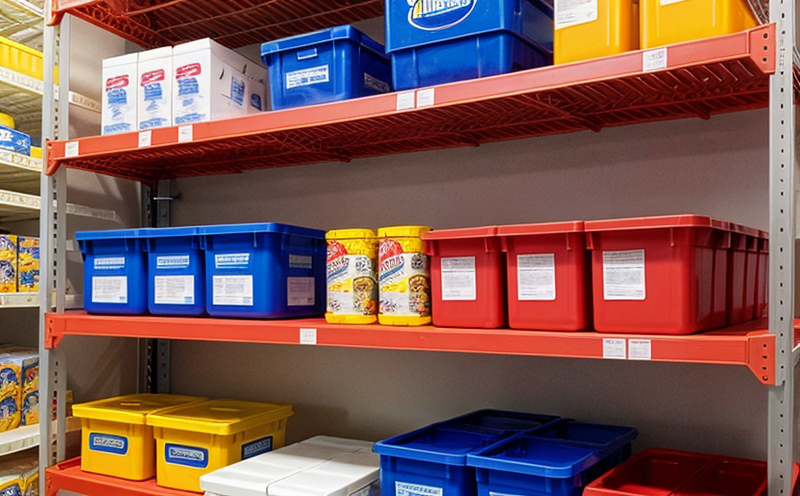ISO 108243 Real-Time Stability Testing in Sauces
The shelf life and stability of sauces are critical factors that influence their quality, safety, and market acceptance. ISO 108243 outlines a standard method for real-time stability testing which helps manufacturers understand how temperature affects the chemical composition, sensory properties, and microbial stability over time.
This test is particularly important in the food industry because it ensures that products maintain their quality throughout shelf life without compromising safety or consumer satisfaction. By conducting this type of testing early in the product development cycle, companies can identify potential issues before they impact production schedules or consumer trust.
The real-time stability study involves exposing samples to actual storage conditions for an extended period—typically six months—while closely monitoring changes in physical and chemical characteristics such as color, texture, flavor profile, acidity levels, pH values, viscosity, and microbial load. This approach allows manufacturers to assess the product's overall performance under realistic circumstances.
One of the key aspects of this testing is the selection of appropriate conditions that mimic real-world storage environments accurately. For example, different types of sauces may require varying temperatures based on their ingredients, packaging materials, and intended distribution channels.
Sample preparation plays a crucial role in ensuring accurate results from these studies. Samples must be prepared according to specific guidelines laid out in ISO 108243 to ensure consistency across all batches tested during the study period. Proper sample handling also helps prevent contamination or degradation of the samples before they are exposed to storage conditions.
During the study, various analytical techniques may be employed depending on what aspects of the sauce need evaluation. These could include instrumental analyses like spectrophotometry, titrimetric methods, chromatography, and microbiological assays. All measurements should follow internationally recognized standards such as ISO or ASTM to ensure comparability between studies conducted by different laboratories.
The results from this type of testing provide valuable insights into the stability characteristics of a product. They help manufacturers make informed decisions about ingredient selection, formulation optimization, packaging design improvements, and storage recommendations aimed at extending shelf life while maintaining quality standards throughout distribution networks.
Understanding these factors early in the development process enables companies to develop more robust products that meet regulatory requirements and customer expectations. Additionally, this knowledge can contribute significantly to reducing waste by helping firms better predict when a product will start degrading beyond acceptable limits.
Benefits
- Identify potential issues early in the development cycle
- Achieve regulatory compliance more efficiently
- Enhance product quality and safety
- Promote consumer confidence through consistent product performance
- Reduce waste by optimizing storage recommendations
Eurolab Advantages
Our team at Eurolab brings extensive experience in food science and quality assurance to every project. With state-of-the-art facilities equipped with advanced analytical equipment, we ensure precise measurements and accurate data collection during our real-time stability studies.
We employ skilled scientists who stay current with the latest industry trends and regulatory updates, ensuring that your testing aligns perfectly with relevant standards like ISO 108243. Our commitment to accuracy means you can trust us to deliver reliable results every time.
In addition to providing comprehensive technical support throughout each project phase, our experienced staff offers strategic guidance based on the findings from these tests. This helps clients not only meet current requirements but also anticipate future challenges in their respective markets.





